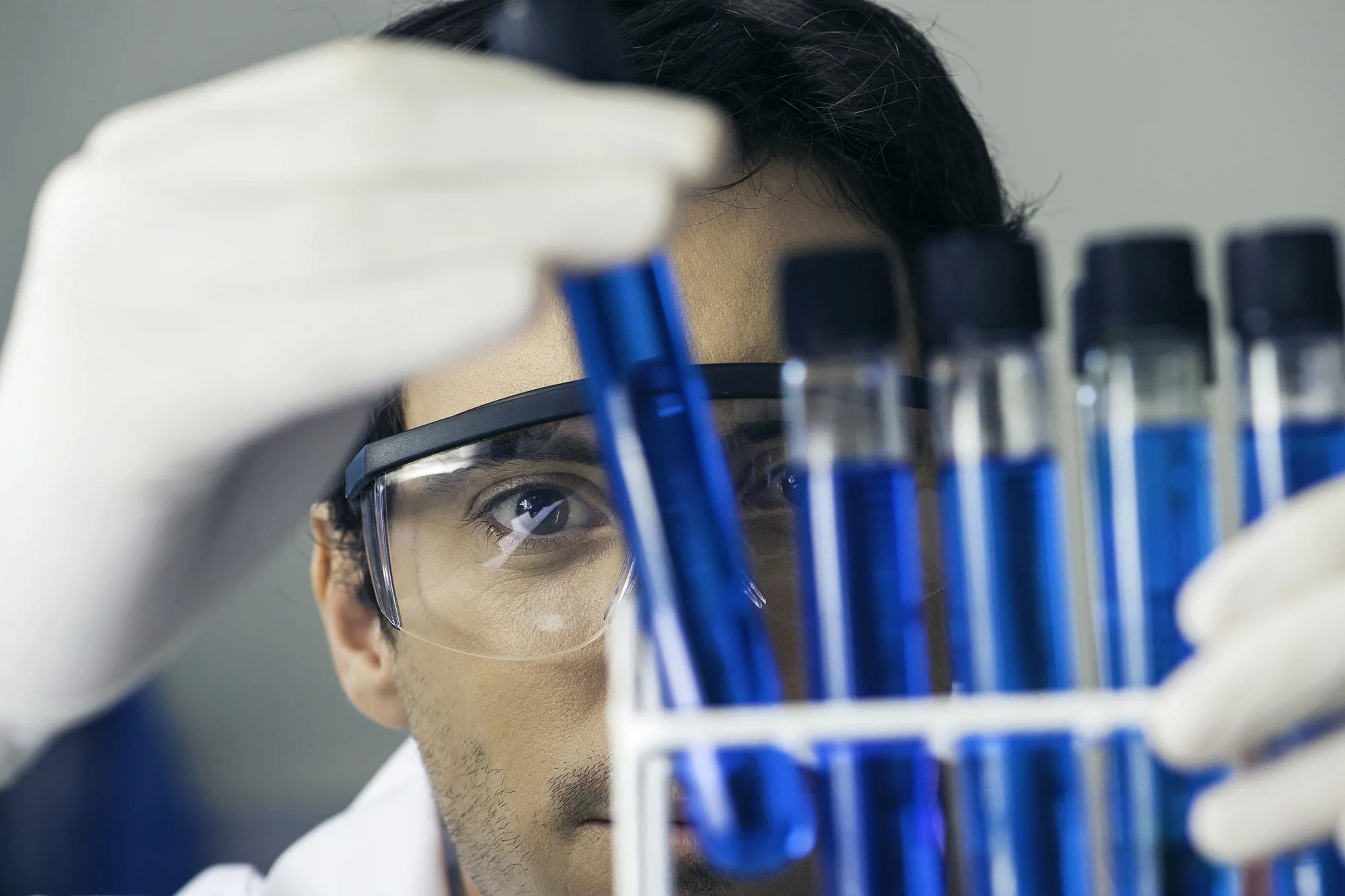Innovative infectious disease Professor awarded top Engineering Research Prize
Rachel McKendry is Professor of Biomedical Nanoscience at University College London and Director of the i-sense EPSRC IRC in Early Warning Sensing Systems for Infectious Diseases. Her research lies at the cutting edge of quantum technologies, deep learning and telecommunications for infectious diseases and public health.
McKendry led the i-sense team to help tackle a range of infections from HIV to the global response to COVID-19, developing new diagnostics and analysing data for public health surveillance. She is also working to transform the ability to accurately interpret HIV results with the use of ‘nanodiamonds’, which have heightened sensitivity to detect virus proteins in blood.
McKendry hopes to use the £350,000 prize to utilise her team’s recent breakthroughs with nanodiamond diagnostics to revolutionise the early diagnosis of antimicrobial resistance. If successful, this ground-breaking early-stage research could lay the foundations of next stage translational funding, and open up applications to other communicable and non-communicable diseases.
She explained: “It is a tremendous honour to receive the IET A F Harvey Engineering Research Prize 2024. I would like to dedicate this prize to my wonderful team and i-sense collaborators. With this funding, we aim to develop proof-of-concept ultra-sensitive quantum-enhanced tests for antimicrobial resistance, and will explore novel advanced materials and device configurations for use in decentralised clinical settings. Antibiotics underpin modern medicine, but the rise of drug-resistance – the silent pandemic – is a huge clinical and public health concern.
“There is an urgent need for new diagnostic tests that can detect early infections and to improve antibiotic stewardship. I am also really excited to lead a public engagement initiative to raise the visibility of the hidden heroes of diagnostics – the engineers and scientists behind diagnostic tests that have been so vital to the COVID-19 pandemic response.”
Dr Gopi said: “The IET’s A F Harvey Engineering Research Prize supports the world’s best scientists and engineers to advance their research. Professor McKendry is leading the way in public health and diagnostics with her pioneering work at the intersection of biology, digital, and materials. I’d like to congratulate her on this award – we are excited to support the next phase of her research.”
Professor McKendry will present her work at a keynote lecture, hosted by the IET, on 14 March 2024. The event will be broadcast live and followed by a Q&A session.
With this year’s theme focusing on medical engineering and technology, the prestigious A F Harvey Engineering Research Prize is awarded to a world-leading engineer from the fields of medical, microwave and radar or laser/optoelectronic engineering to enable them to continue further research.
ENDS
Notes to Editors
About the A F Harvey Engineering Research Prize
The IET A F Harvey Engineering Research Prize, worth £350,000, is named after Dr A F Harvey who bequeathed a generous sum of money to the IET for a trust fund to be set up in his name for the furtherance of scientific research into the fields of radar and microwaves; lasers and optoelectronics; medical engineering.
Professor Rachel McKendry biography
Professor Rachel McKendry is Professor of Biomedical Nanoscience and holds a joint position between the London Centre for Nanotechnology and Division of Medicine, University College London. She is Director of the i-sense EPSRC IRC, a large interdisciplinary research collaboration in Early Warning Sensing Systems for Infectious Diseases (2013-24) and the new EPSRC Digital Health Hub for AMR (2023-2026). Her research lies at the cutting edge of quantum technologies, deep learning and telecommunications for infectious diseases and public health. Her recent breakthroughs span from ultra-sensitive quantum nanodiamond diagnostics for virus detection (Miller et al., Nature 2020), to mHealth and deep learning models for rapid testing in partnership with the Africa Health Research Institute in South Africa (Turbé et al., Nature Medicine 2021). Professor McKendry has won several awards for her research including the Royal Society Rosalind Franklin Award, Royal Society Wolfson Research Merit Award and the Institute of Physics Paterson Medal. She co-chaired the Digital Medicine Theme of the Topol Review of the NHS, ‘Preparing the Healthcare Workforce to Deliver the Digital Future’, served on the cross-council Steering Group for Antimicrobial Resistance, chaired the National Bionanosurveillance Network Expert Advisory Group and currently serves on the International Pandemic Preparedness 100 Days Mission Diagnostic Scientific and Technical Advisory Group.
About the IET
- We inspire, inform and influence the global engineering community to engineer a better world.
- We are a diverse home for engineering and technology intelligence throughout the world. This breadth and depth means we are uniquely placed to help the sector progress society.
- We want to build the profile of engineering and technology to change outdated perceptions and tackle the skills gap. This includes encouraging more women to become engineers and growing the number of engineering apprentices.
- Interview opportunities are available with our spokespeople from a range of engineering and technology disciplines including cyber-security, energy, engineering skills, innovation, manufacturing, technology, transport and diversity in engineering.
- For more information, visit theiet.org
- Follow the IET on Twitter.
IET Media enquiries
Rebecca Gillick
External Communications Manager
Email: rgillick@theiet.org
Sophie Lockyer
Senior Communications Executive
Email: slockyer@theiet.org

